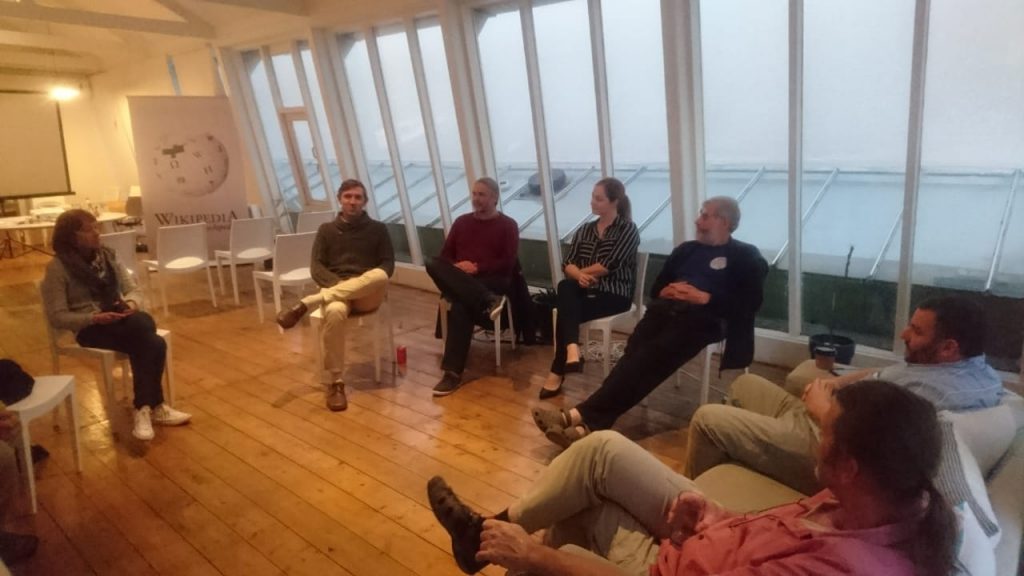Cape Town was very lucky to host Wikimedia Foundation’s Senior Program Officer Asaf Bartov at the end of his Africa tour. We held a meetup, and it proved particularly inspiring to those attending.
Asaf spoke about Wikidata, discussed projects using the data, and demonstrated a number of tools that were new to most of us, such as https://query.wikidata.org, which uses the SPARQL query language to query Wikidata content.

Wikidata adds structure to the content which makes pulling out all kinds of related information possible. Wikipedia data is fairly unstructured. Numerous categories exist, so if you’re looking for, say, a list of South African politicians, there’s both a list page and a category page. However, if you want something more detailed, such as a list of South African politicians that have a father that was a politician, without lots of manual slogging, Wikipedia alone won’t be much help. That’s where https://query.wikidata.org comes in, and once familiar with SPARQL, such questions are easy to answer.
Even more exciting to me was Quarry. Years ago I remember toying with the idea of downloading a Wikipedia database dump, but at the time the massive download would probably have ground South Africa’s internet to a halt. Quarry is an interface for running SQL queries directly on the Wikimedia Foundation’s backend MariaDB databases. The bar to getting something useful is a little higher than on https://query.wikidata.org, as to use it effectively requires getting to know the data structure, but since access is direct, it’s a tremendously powerful tool to extract almost anything you want.
The easiest way to get started is to take someone else’s query and modify it. For example, here is a query listing pages from the Afrikaans Wikipedia that don’t have an Afrikaans label on Wikidata, which I forked from Asaf’s demo run during the meetup: https://quarry.wmflabs.org/query/27283
I can already see myself diving in and automating and expanding the (semi) regular African language updates I do, or getting automatic notifications of activity in some of the small South African language Wikipedias.
And if those listed above are not enough, Asaf has a tool section on his user page listing yet more wonderful tools you’ve probably never heard of.
Thanks Asaf for taking the initiative to pay a visit to some of the African Wikimedia communities, and leaving a trail of inspiration in your wake.
Thanks Ian. You may be interested in a new tool called WikiChron ( wikichron.science ) which visualises contributions in real time. I farted around for weeks with spreadsheets for my dissertation. It’s supposedly demonstrated in this video but I couldn’t find it https://www.youtube.com/watch?v=Y9lvXVJCiyc
Yes, we attended the Joburg leg of his visit and were also left inspired… I particularily loved the Wikidata query tool which I used when I visited mozambique for a WikiGAP workshop. This time I liked the Massview tool which is useful to show page view of say a Wikipedia Category!!!